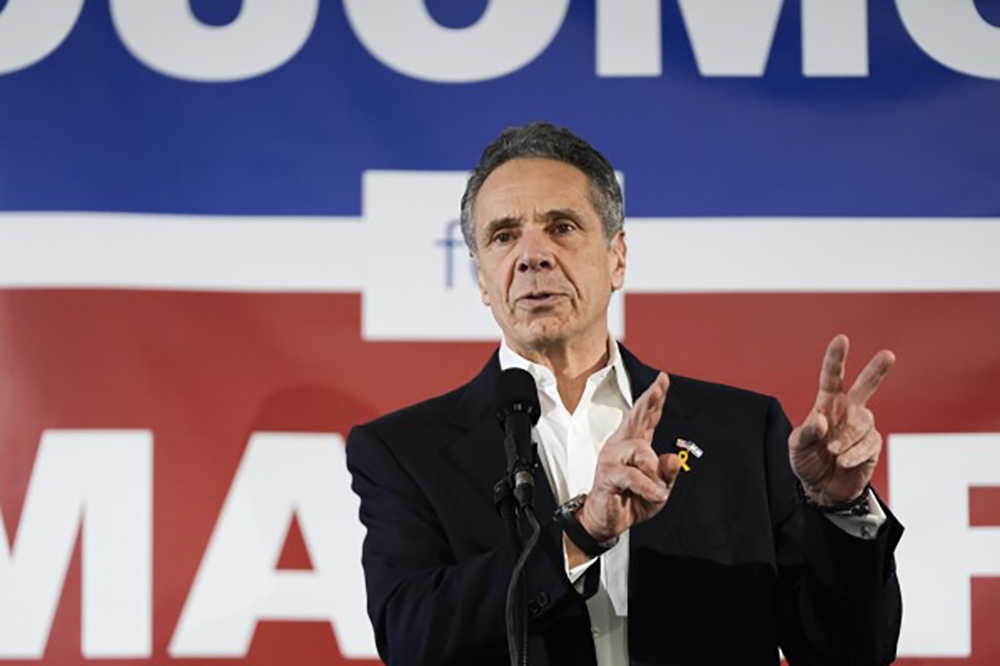|
Getting your Trinity Audio player ready...
|
By: Meyer Wolfsheim
Ex-Governor Andrew Cuomo’s mayoral bid is stirring controversy, as critics claim he is running a “Rose Garden” campaign strategy—a term popularized in the 1976 presidential race when Jimmy Carter accused Gerald Ford of using his office to gain free publicity while avoiding hard questions.
The phrase, which refers to a candidate’s effort to generate favorable public relations while limiting direct exposure to scrutiny, has now been applied to Cuomo, who is running for mayor while keeping his interactions with the public and press to a minimum.
Critics, including the anti-Cuomo group New Yorkers for Better Leadership, claim that Cuomo is ducking difficult questions about his controversial tenure as governor, especially his handling of the COVID-19 crisis and his personal scandals. “Andrew Cuomo plays the tough guy, but apparently he’s too scared to take a question from a voter. This guy claims he’s a crisis manager, but he’s not willing to answer any difficult questions about how he would actually do the job,” said Lauren Hitt, a spokesperson for the group said.
The accusation has become a talking point in the race, particularly as Cuomo, who entered the mayoral race nearly a month ago, maintains a low public profile. His campaign, however, quickly dismissed the allegations as “nonsense.” “Since Governor Cuomo entered this race a month ago, he has spent his time with voters, men and women of the labor movement, and various constituency groups across all 5 boroughs, while also doing interviews with the media, including an over two-hour-long on-the-record sit-down with the New York Post, and having weekly gaggles,” said Cuomo’s spokesman Richard Azzopardi, defending his candidate’s engagement.
The term “Rose Garden strategy” was first coined during the 1976 presidential election when Jimmy Carter criticized President Gerald Ford for using the prestige of the White House to create public relations opportunities without addressing tough issues. In a similar vein, Cuomo’s critics argue that his limited public exposure and focus on endorsements and pre-arranged events amount to a strategic attempt to avoid accountability.
A major point of contention for many of Cuomo’s critics is his handling of the COVID-19 pandemic, particularly his controversial directive to send COVID-infected patients into nursing homes. This decision has haunted him for years, and as he makes his comeback bid for mayor, many wonder how these unresolved issues might impact his ability to lead the city.
Hitt further questioned whether Cuomo’s personal and political “baggage” would detract from his ability to serve the city. “Won’t Cuomo’s baggage get in the way of running the City? We won’t waste time trying to figure out what on earth an ‘emotional romantic relationship’ is, but it is clear the former governor continues to be dogged by lawsuits and other scandals,” she said, referencing The NY Post’s bombshell story about Cuomo’s alleged relationship with former top aide and adviser Melissa DeRosa.
Cuomo’s camp remains defiant in the face of these accusations. Campaign spokesperson Richard Azzopardi criticized Hitt’s comments as “classless” and accused her PAC of being desperate and unable to raise funds. He also pointed out that Cuomo had been more accessible than his critics suggest, noting his participation in a mayoral forum on March 23 and a two-hour grilling by The NY Post editorial board on March 17. “New Yorkers know Andrew Cuomo is the only candidate for the job,” Azzopardi said.





